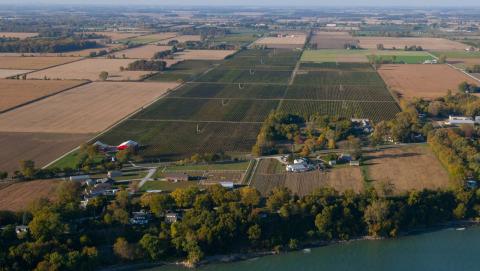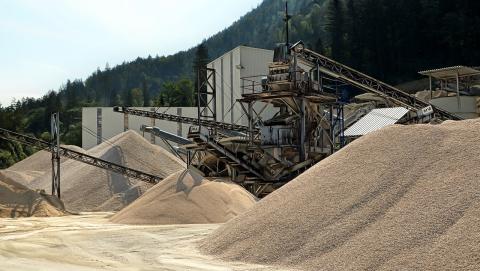
Municipal Environmental Stewardship
Municipal governments play a key role in safeguarding local environmental quality, building resiliency, and protecting their residents from significant climate change events. Municipalities are often at the forefront of environmental protection, although federal and provincial governments hold most of the legislative authority and financial resources.
The provincial government released its Made-in-Ontario Environment Plan in 2018, and the Special Advisor’s Flooding Report in 2019. These documents outline the province’s priorities and targets for environmental protection and the need for climate change adaptation.
Infrastructure funding agreements such as the Investing in Canada Plan Green Infrastructure Stream, the Disaster Mitigation Fund, and other federal and provincial investments have been a welcome resource for municipal governments in making capital improvements that result in cleaner water, air, and land for communities. Municipalities look forward to continued funding support to meet shared environmental goals in the future.
There are many municipal roles related to environmental stewardship. To illustrate, listed below are a few examples of AMO’s environmental policy files.
Municipal Water Stewardship
Municipal governments across Ontario have a longstanding responsibility for protecting public health and the environment through water stewardship:
- Municipal governments are responsible for delivering safe drinking water that meets exacting quality.
- Municipal wastewater treatment is also subject to high quality standards for treatment and effluent.
- Stormwater systems are built, operated, and maintained to contain and treat runoff to lakes and rivers.
- Source water protection regulations also assign municipalities responsibility for ensuring the protection of drinking water sources and municipalities work with their communities to ensure these sources are protected.
The Ministry of Environment, Conservation and Parks has also committed to new reporting requirements when municipal sewage overflows happen so that the public has the best information on these occurrences. Municipal sewage overflows typically result from intense storm systems overwhelming municipal treatment and collection systems. In some cases, older combined sewer systems collect stormwater and wastewater together. A changing climate also poses challenges in managing these events as systems were designed for previous weather standards. Municipalities need infrastructure funding to improve and upgrade wastewater and stormwater systems to manage and reduce overflows.
Waste Diversion
Municipal waste diversion programs reduce the amount of garbage dumped in landfills and waste disposal sites. Municipal governments play a crucial role in ensuring that residential waste is properly managed to safeguard the health of our communities and our environment. This means ensuring that waste is managed safely, including litter clean up, managing residual waste in our wastewater treatment facilities, and through recycling and disposal programs. While significant progress has been made in developing integrated waste management systems that divert about half of Ontario’s residential waste stream, household recycling has stalled, the amount of waste keeps increasing along with costs to manage it while municipalities have little control over the waste that is produced.
Extended producer responsibility (EPR) refers to a policy that places financial and operational responsibility for the end-of-life management of a product or packaging to those who produce it – such as manufacturers, packagers, or retailers. Municipal governments have been strongly supportive of EPR as it creates economic opportunities, incentivizes innovation, improves our environment, and reduces the burden on Ontario’s taxpayers. See AMO’s full Waste Diversion webpage for further information.
Climate Change
Climate change is a growing global concern, and its effects are being experienced on a local level, including across Ontario. When dangerous heat waves, flooding and storms occur, municipal services are often the first to respond. Combatting climate change has been a longstanding advocacy issue for AMO because municipal governments across Ontario are at the forefront of climate change adaptation and mitigation efforts. Over the years, municipal councils have declared climate change emergencies and developed climate change action plans to complement the municipal energy plans they are required to complete and help address the local impacts of climate change.
For further information on AMO’s policy and advocacy work related to climate change, please click here.
Environmental Assessment
Federal and provincial legislation on Environmental Assessment (EA) lays out the framework and process for evaluating the potential environmental effects of a project. AMO and municipal staff associations, including the Municipal Engineers Association (MEA), have long called for changes to streamline the EA process to make it easier and faster to undertake projects that communities need to increase prosperity while protecting important ecosystems and natural capital.
The Ministry of Environment, Conservation and Parks has put forward changes to the EA process to streamline and accelerate EAs to improve project timelines and build infrastructure in communities faster including:
- a new process for projects going forward, including class EAs;
- limiting requests for “bump up” decisions to the Minister to those affecting Aboriginal treaty rights;
- requiring Minister’s orders to be made within 30 days of the comment period; and
- establishing a 10-year limitation for starting projects after EA completion.
While Ontario is developing a new approach to EA that replaces the Class EAs currently in place, there are still changes to the Municipal Class EA process that are needed to modernize the regime in the interim. AMO has supported the MEA in their request to have these changes put in place.
AMO will continue to work with the Ministry and other municipal groups to ensure the changes help to deliver projects in a timely manner while providing appropriate protections for our shared environment.
Conservation Authorities
Municipalities who fall within the boundaries of the 36 Conservation Authorities (CAs) across Ontario rely on them as local watershed management agencies. Their role is to conserve, restore, and responsibly manage Ontario’s water, land, and natural habitats while balancing human, environmental, and economic needs. The transition to the new funding and framework for CAs will take effect on January 1, 2024. For more information, check out our webpage.
Aggregate Resources
The Provincial Policy Statement gives the location of pits and quarries a very high priority, making it difficult for municipal governments to oppose them. While the province approves a license for extraction, municipal governments must deal with the impacts of the site on water resources, neighbours, haul routes, road damage from heavy hauling, pit rehabilitation, and safety for traffic and pedestrians.
AMO’s priority for aggregates is to ensure that proposed changes to the Aggregate Resources Act (O. Reg 244/97) do not include permitting aggregate extraction below the water table without recognition of the impact it has on council members’ ability to exercise their legal responsibilities under the Safe Drinking Water Act (i.e., indemnification).
Excess Soil Management
Excess soil is soil that has been excavated at a construction site but has no further use at the site. Municipal governments need policies that protect public health and the environment by preventing this soil from being illegally dumped or disposed in landfills. AMO has long supported looking for ways to reuse excess soil and reduce the greenhouse gas emissions associated with transporting it.
In April 2022, the Ministry of the Environment, Conservation and Parks announced a one-year delay in the implementation of certain provisions in the On-Site and Excess Soil Regulation (O. Reg. 406/19) under the Environmental Protection Act). The rationale for the delay was to provide more time to understand the provisions and refine their implementation. More information can be found on the Environmental Registry decision.
AMO continues to work with the Ministry, the Resource Recovery and Productivity Authority (RPRA), and other stakeholders to ensure that the regulation is implemented in full and that guidance and communications around these changes are provided to municipal governments, so they comply with these new rules.



